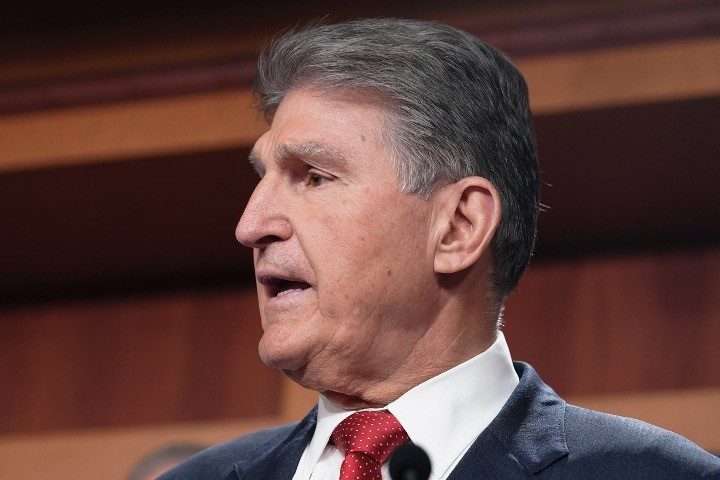
On Friday, West Virginia Democratic Senator Joe Manchin, who serves as the chairman of the Senate Energy and Natural Resources Committee, fired a volley against the Biden administration in their push to staff key bureaucracies with climate fanatics. In an op-ed published in the Houston Chronicle, Manchin announced his intention to block Biden’s climate-hysteric pick to serve as an assistant secretary at the Interior Department.
“Today, I have also decided, as chairman of the Senate Energy and Natural Resources Committee, that I will not be moving forward the nomination of Laura Daniel-Davis as assistant secretary of the Department of Interior. Daniel-Davis approved higher royalty rates for the Alaskan Cook Inlet sale, which were explicitly designed to decrease fossil energy production at the expense of our energy security. Even though I supported her in the past, I cannot, in good conscience, support her or anyone else who will play partisan politics and agree with this misguided and dangerous manipulation of the law,” Manchin wrote.
Biden first nominated Daniel-Davis in June of 2021. The West Virginia senator has voted for her in the past, but apparently now sees her as an extreme climate radical insistent on pushing climate goals over American energy security.
Since her original nomination, Daniel-Davis has appeared for two confirmation hearings before the Senate Energy and Natural Resources Committee. She has failed twice to be approved. In January, Biden again forwarded her name, prompting pushback from the GOP.
“Laura Daniel-Davis’ nomination should have been pulled over a year ago when she first failed to pass committee,” said Senator Steve Daines (R-Mont.). “The latest attack on oil and gas is no surprise. The Biden administration, his out of touch nominees and Senate Democrats have long put the cult of climate change ahead of energy security and local communities.”
Now, Manchin apparently agrees.
“Going forward, each and every proposed nominee I will review will be judged through one prism: Are they political partisans first or Americans first?” Manchin wrote.
Manchin also voted against Biden’s pick to head the Internal Revenue Service, Danny Werfel, this week.
“Instead of abiding by the law, the department pandered to climate activists. With this in mind, I was unable to support Danny Werfel, the administration’s nominee to serve as commissioner of the Internal Revenue Service,” Manchin wrote.
Despite Manchin’s stance, Werfel was confirmed by the Senate in a 54-42 vote on Thursday.
It’s not Manchin’s first tussle with the Biden administration. The Mountain State senator famously slowed down the administration’s key piece of legislation, the so-called Inflation Reduction Act (IRA), throughout much of 2021. In September of that year, Manchin called for a “strategic pause” on the legislation, claiming that “some in Congress have a strange belief there is an infinite supply of money to deal with any current or future crisis, and that spending trillions upon trillions will have no negative consequence for the future. I disagree.”
Of course, some months later, after Biden and other Democrats worked on him, promising that the government would take an “all of the above” approach to energy production in America, Manchin caved and ended up supporting the monstrosity of a bill.
He later accused the Biden administration of not interpreting the law in the way he was promised.
“The Biden administration must begin to implement the IRA that was passed, not the law they wanted but did not get. Let me be clear: If they choose to continue down this path there will be consequences now and in the future,” Manchin noted.
As West Virginia is a state largely dependent on fossil fuels — especially coal — for many livelihoods in the state, Manchin has felt the need to push back against Democratic extremism on so-called climate issues. He has ruled out a run for the presidency in 2024, but has not yet announced if he will seek reelection for the Senate.
It’s likely that his tough talk against the Biden administration’s radical climate agenda is an omen of another run for the Senate in 2024. Unfortunately, though, Manchin’s usual method of operation involves talking tough in support of his state’s fossil-fuel interests before bowing to Democratic pressure, as he did with the Inflation Reduction Act. In the last few election cycles, the highly unionized West Virginians have moved decidedly red in their elections.
In 2018, Manchin just scraped by Republican Patrick Morrisey — the state’s current attorney general. If he continues to cave on climate issues to Biden and the Democrats, Manchin’s future prospects look increasingly grim in the Mountain State.





